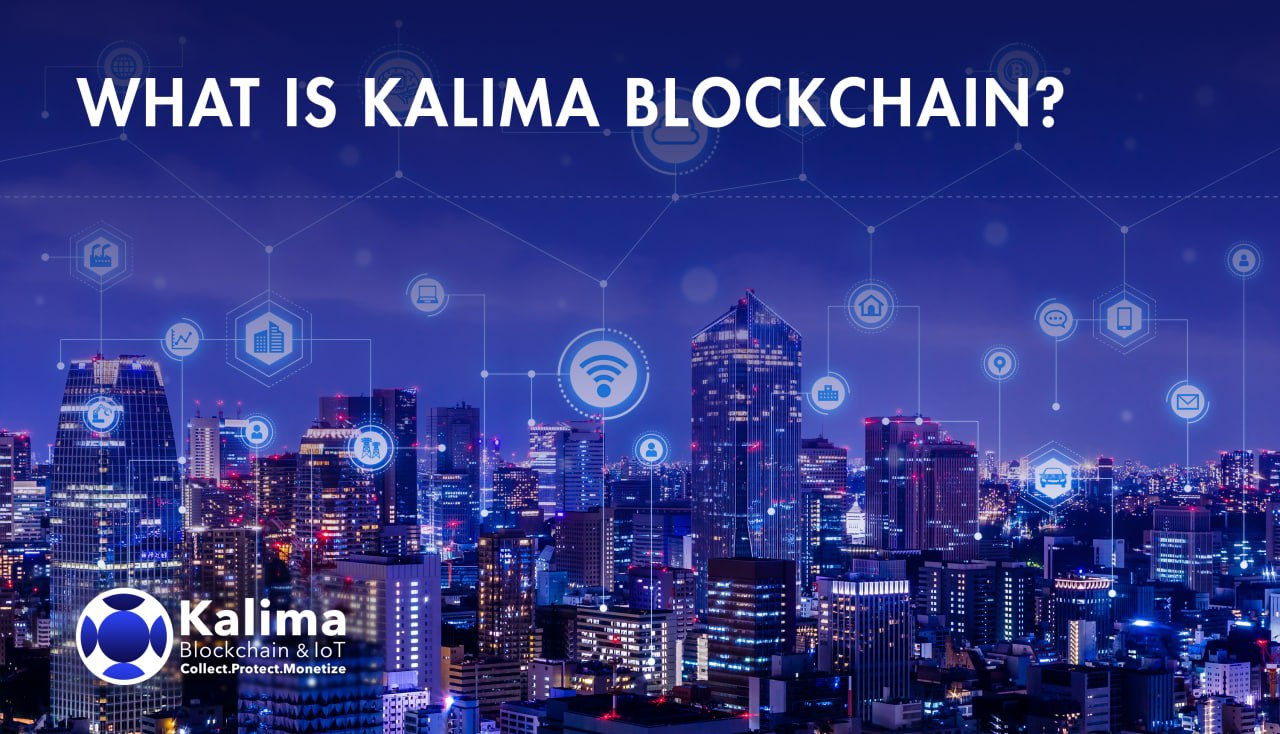Focus on transparency, efficiency and sustainability for IoT
PARIS, FRANCE / ACCESSWIRE / August 8, 2022 / Human existence is becoming more dependent on the internet and technological communication over time. This dependency means that the devices generate larger amounts of data and must work together more efficiently. This reality is evident in a world catching up with blockchain innovation. Kalima blockchain intends to be a bridge for the thriving sectors.

Andre Legendre, who currently serves as founder and CTO, founded the blockchain Kalima in 2012. This era was just before cryptocurrencies took off. The company has since undertaken significant development work and intends to become a major player in the blockchain data management scene by leveraging blockchain’s efficiency for these efforts.
Exploring the Kalima Blockchain
After ten years of development, the Kalima blockchain is ready to become a viable blockchain solution for Internet of Things (IoT) services. This third-generation blockchain platform allows businesses to independently and securely monetize and manage corporate data. The impact of IoT applications is evident in today’s life, with all types of devices in our homes able to communicate and function at a high level.
These opportunities arise in a world of data management solutions that need to improve. The specific areas of concern are end-to-end data management and monetization of centralized entities. Businesses that rely on apps generated by everyday devices can use more efficient solutions.
Kalima aims to build the infrastructure for secure data collection and management using IoT systems. The basis for this secure data transfer and storage is the immutability of blockchain technology.
The Kalima ecosystem consists of a network of blockchains called Kalima private chains. These private chains have excellent API integration and can connect seamlessly with other Private chains, public blockchains and external systems. In particular, the Kalima blockchain network relies on delegated Proof of Stake (dPOS) consensus. This algorithm is sustainable as it uses significantly fewer resources than Proof of Work consensus.
KTX, Tokenization and the future
The platform’s native Kalima token (KTX) facilitates operations and liquidity in the Kalima ecosystem. Its primary use is the payment of transaction fees on the various Privachains.
Users can also participate in the network management by betting. Those who have the necessary amounts of KLX in circulation can create their stake pools, become validators and receive stake rewards. Other users can also delegate KLX to these pools and earn rewards proportional to their staked tokens. The token holders can sell their tokens on various decentralized exchanges and finally centralized ones.
The development team intends to continue with crowdfunding and global scaling in the near term. The public sale will take place over the next few months, allowing the public to experience this versatile ERC-20 compatible token. KLX has the promise of a multi-purpose token with broad utility to build, use, bet and participate in consensus within a dynamic ecosystem.
Overall, this blockchain can improve monitoring, reduce decision lag, and create monetization capabilities. These benefits, combined with advanced analytics, mean blockchain IoT can provide the digital intelligence modern and sustainable businesses require.
Long-term focus on environmental, social and governance (ESG) data.
Besides the efficient consensus algorithm, Kalima intends to focus on collecting and monetizing environmental, social and governance (ESG) data. Such data is useful for ESG assessments, reporting and monetization. This suits the needs of businesses that need to report on their sustainability commitments and social practices.
The Kalima main chain is the primary operational hub with various private private and industrial public blockchains connecting operations. Companies, developers and individual users can create their own decentralized applications to manage IoT data.
Such companies can connect decentralized oracles that provide real-world data to the Kalima blockchain. Businesses and individuals can monetize their data efficiently with the private chains that ensure the data is secure, transparent and immutable.
Throughout this decade, the majority of data will be processed by units that are closer to the individual. Mobile phones already account for the majority of internet traffic, and this trend should continue for other smart devices in the home. Kalima’s smart contract customers can process such data and create value for entrepreneurs and individuals.
The blockchain aims to handle significant amounts of ESG data, including sensitive information. IoT sensors do the collecting bit while blockchain integration and analysis processes, transmission and storage. Also, the mainnet can communicate with leading public blockchains such as Tezos or Bitcoin.
Contact information:
Leo Maurice
[email protected]
https://www.kalima.io
SOURCE: Kalima


